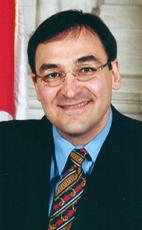First of all, Mr. Speaker, she knows very well that we are talking actually about an RCMP investigation and we cannot comment, of course. We are talking basically about allegations. Having said that, on a more general note we are talking basically about criminal offences and criminal offences fall under the responsibility of the provincial attorneys. It is part of their jurisdiction. Let them do their work.

